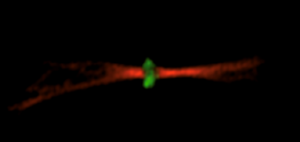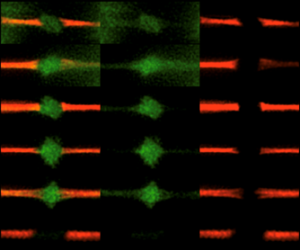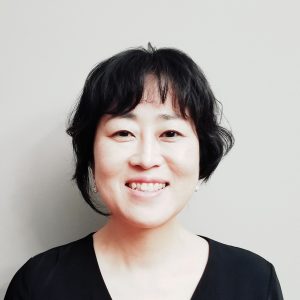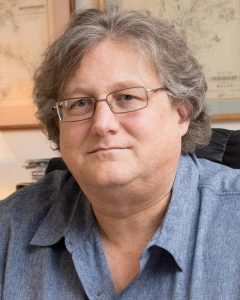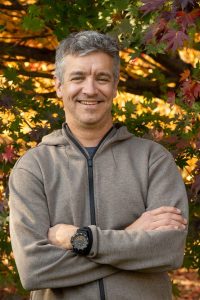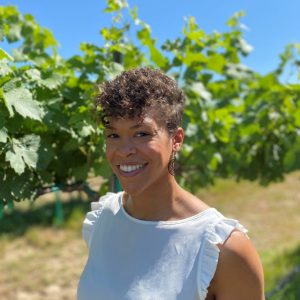In celebration of the University of Wisconsin-Madison’s 175th anniversary, Badger Talks is proud to spotlight examples of cutting-edge innovation and breakthrough research of UW-Madison experts. The benefits of this work expand beyond the boundaries of campus and is available to and impacting people in every corner of the state, exemplifying the Wisconsin Idea.
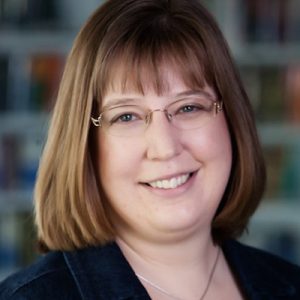
Susanna Widicus Weaver, Vozza Professor of Chemistry and Astronomy
Little Green … Molecules? What the Chemistry of Space Can Tell Us About Life in the Universe
Molecules make up the world around us and serve as the building blocks to life as we know it on Earth. The questions remain as to how these molecules form and are incorporated into planets, and whether life might form elsewhere in the universe. Astrochemists study the chemistry of space and the evolution of molecules as stars and planets form. Dive into the work of the Widicus Weaver astrochemistry research program which incorporates laboratory spectroscopy, observational astronomy, and astrochemical modeling to decipher the chemistry that might lead to life in the universe.
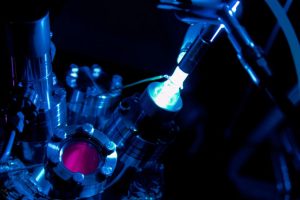
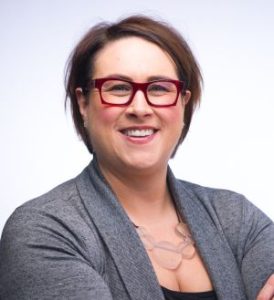
Ahna Skop, Professor in the Department of Genetics
One cell divides into three things? The curious story of how cells communicate
New research from the Skop Lab (Genetics) revealed that at the end of mitosis or cytokinesis a small organelle called the midbody remnant (MBR) is generated that contains RNA, mitochondria, and can synthesize proteins. The MBR contains RNAs that can change the fate of cells that ingest this information and are just beginning to be understood. These organelles are released by cancer and stem cells in large amounts, and are used in cancer diagnostics. Many people are excited as midbody remnants have the potential to serve as vehicles for RNA and drug therapeutics for a variety of cancers and also neurodegenerative disease.
Yeohyun Ahn, Assistant Professor of Graphic Design
Floral Design + AR/XR: A Trans-disciplinary Floral Design with Augmented/Mixed Realities
Floral Design + CODE with AR/XR reinterprets traditional art and floral design into a generative floral system. It employs mathematical expressions, computer algorithms, sound, and video libraries. It is a new visual language integrating computational floral art, textile design, type, typography, Interactive Art, augmented reality, and mixed reality with floral elements.
It has been presented at SIGGRAPH SPARK, SIGGRAPH DAC (Digital Art Community) and Typographics 2023, Type Lab, Cooper Union, N.Y.C., NY in 2023. It is published at Communication + Place (Journal) by the Society of Experiential Graphic Design in Washington DC. Prof. Ahn was one of the four judges in a prestigious design competition, STA Competition 100 by the Society of Typographic Arts in 2022. For more information: http://yeoahn.com/designandchange/pages/about/

Steven Deller, Vilas Distinguished Achievement Professor in the Department of Agricultural and Applied Economics
Broadband Research, the Wisconsin Idea, and the UW Extension
The economic shutdown spurred by the COVID-19 pandemic shined a spotlight on access to broadband internet. Many rural Wisconsin communities lacked the physical infrastructure required for broadband access and high subscription costs proved a barrier for many low-income families across the state. In the spirit of the Wisconsin Idea a core group of UW-Madison researchers and Division of Extension specialists and educators engaged in a series of applied research projects resulting in a number of outreach publications and community focused educational programs. The work continues by helping a range of Wisconsin communities plan for and navigate the investment opportunities offered by recent federal funding opportunities.
Brad Herrick, Ecologist and Research Program Manager, UW-Madison Arboretum
Impacts and Management of Non-Native Invasive Species
Brad is interested in the impact and management solutions of non-native invasive species. His current research focus is understanding the population dynamics and ecosystem effects of the jumping worm (Amynthas spp.), a new non-native, invasive earthworm in Wisconsin.
Wisconsin Impact:
Research has shown that jumping worms can negatively affect plant health and dramatically change the soil structure and nutrient availability in deciduous forests. Brad’s research aims to provide land managers, gardeners, NGO’s, local governments, state agencies and the green industry with the latest science-based information on how jumping worms affect native and horticultural plants, forest ecosystems and what we can collectively do to minimize the spread of this new invasive species.
Media coverage:

Leslie Holland, Assistant Professor and Extension Specialist
Biology and Integrated Management of Pathogens of Fruit Crops in Wisconsin
The Fruit Crops Pathology Program focuses on the diagnosis, biology, and management of pathogens affecting fruit production in Wisconsin, specifically – cranberry, apple, grape, and other specialty fruit crops. We use basic and applied research to address disease challenges of fruit production and translate these findings into practical information for stakeholders. Research projects are driven by grower needs. Research interests include fungal disease complexes, fungicide resistance, disease forecasting, biological control, cultural and chemical management.


